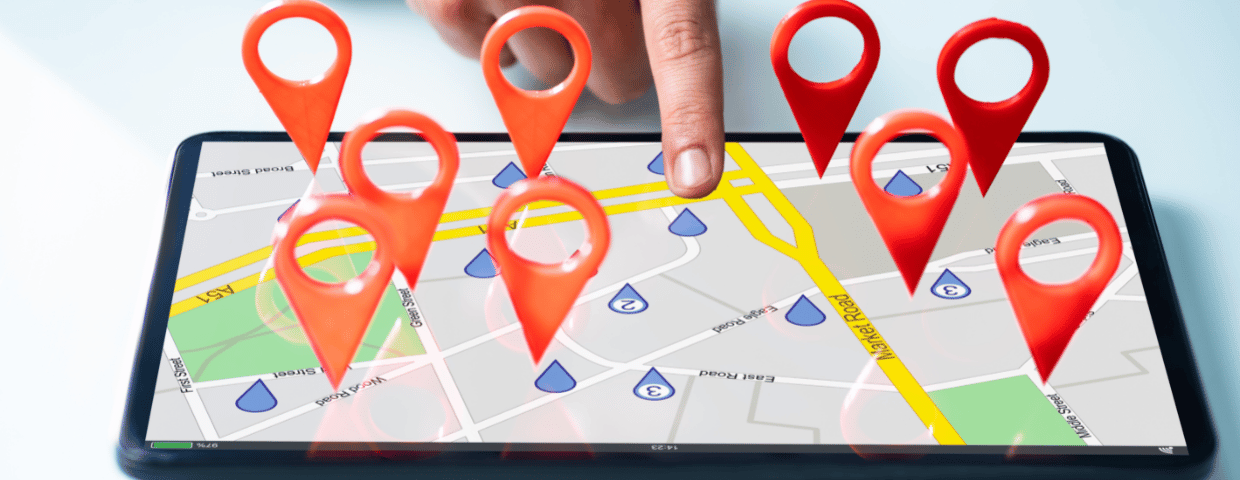Local SEO
by Admin
Posted on 21-02-2025 09:50 PM

What is Local SEO?
Local SEO is a type of SEO that focuses on optimizing your website and online presence for local searches. This means that when someone searches for a product or service in your area, your business will show up in the search engine results pages (SERPs). Local SEO is important because it helps you to reach local customers who are searching for products or services like yours. It's especially important for businesses that have a physical location, such as retail stores, restaurants, and service-based businesses.
Benefits of Local SEO
The benefits of local SEO are numerous. For one, it helps you to increase your online visibility, which can lead to more website traffic and sales. Local SEO also helps you to build credibility and trust with potential customers, as it shows that your business is reputable and established in the local community. To achieve this, consider partnering with a reputable provider of SEO Services Singapore, which can help you to stay ahead of the competition, as it allows you to target specific keywords and phrases that are relevant to your business.
How Local SEO Works
Local SEO works by optimizing your website and online presence for local searches. This involves a combination of techniques, including: * Keyword research: identifying the keywords and phrases that are most relevant to your business and targeting them in your website content and meta tags. * On-page optimization: optimizing your website's content, meta tags, and structure to make it more search engine friendly. * Link building: building high-quality backlinks from other websites to increase your website's authority and ranking. * Local directory listings: listing your business in local directories and citations to increase your online visibility.
Local SEO Strategies
There are several local SEO strategies that you can use to boost your online presence. These include: * Claiming and optimizing your Google My Business listing: this is one of the most important local SEO strategies, as it allows you to manage your business's online presence and provide customers with accurate and up-to-date information. * Building high-quality backlinks: this involves building links from other websites to increase your website's authority and ranking. * Creating location-specific content: this involves creating content that is specific to your business's location, such as blog posts and articles. * Using local keywords: this involves using keywords and phrases that are specific to your business's location, such as city and state names.
Local SEO Tools
There are several local SEO tools that you can use to boost your online presence. These include: * Google My Business: this is a free tool that allows you to manage your business's online presence and provide customers with accurate and up-to-date information. * Moz Local: this is a tool that allows you to manage your business's local listings and citations. * Ahrefs: this is a tool that allows you to analyze your website's backlinks and keywords. * SEMrush: this is a tool that allows you to analyze your website's traffic and ranking.
Common Local SEO Mistakes
There are several common local SEO mistakes that you should avoid. These include: * Not claiming and optimizing your Google My Business listing: this is one of the most important local SEO strategies, and not claiming and optimizing your listing can hurt your online presence. * Not building high-quality backlinks: this can hurt your website's authority and ranking. * Not creating location-specific content: this can make it difficult for customers to find your business online. * Not using local keywords: this can make it difficult for customers to find your business online.
Measuring Local SEO Success
Measuring local SEO success involves tracking your website's traffic, ranking, and conversion rates. You can use tools like Google Analytics and SEMrush to track your website's traffic and ranking, and to analyze your website's conversion rates. You can also use tools like Moz Local and Ahrefs to track your business's local listings and citations.
Local SEO Best Practices
There are several local SEO best practices that you should follow. These include: * Claiming and optimizing your Google My Business listing * Building high-quality backlinks * Creating location-specific content * Using local keywords * Tracking your website's traffic, ranking, and conversion rates
Conclusion
Local SEO is an important part of any business's online marketing strategy. By following the strategies and best practices outlined in this article, you can boost your local online presence and attract more customers to your business. Remember to claim and optimize your Google My Business listing, build high-quality backlinks, create location-specific content, and use local keywords. You should also track your website's traffic, ranking, and conversion rates to measure your local SEO success.
FAQs
What is Local SEO?
Local SEO is the process of optimizing your website and online presence to rank higher in search engine results pages (SERPs) for local searches.
How do I claim my Google My Business listing?
You can claim your Google My Business listing by going to the Google My Business website and following the prompts to verify your business.
What are local keywords?
Local keywords are keywords and phrases that are specific to your business's location, such as city and state names.
How do I build high-quality backlinks?
You can build high-quality backlinks by creating high-quality content and reaching out to other websites to ask for links.
What is the importance of local directory listings?
Local directory listings are important because they help to increase your online visibility and provide customers with accurate and up-to-date information about your business.
Synergy Global Enterprise LLC
111 North Bridge Road #21-01
Peninsula Plaza
Singapore 179098
Phone +65-8694-0671
